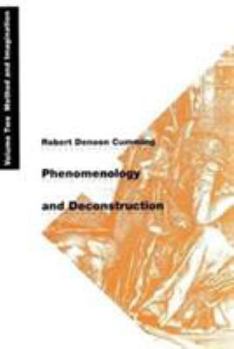Phenomenology and Deconstruction, Volume Two: Method and Imagination
Select Format
Select Condition 
Book Overview
"Husserl had captured me, I saw everything in terms of the perspectives of his philosophy," wrote Sartre of his conversion to Husserl's phenomenology. In the present volume Cumming analyzes Sartre's transformation of Husserl's phenomenological method into a rudimentary dialectic. Cumming thus provides an introduction to phenomenology itself, and more generally to the ways in which debts to previous philosophies can be refurbished in later philosophies. He shows how phenomenology, which for Husserl was a theory of knowledge in which "we can always presume sincerity," becomes for Sartre a theory in which imagination, self-deception, and role playing are crucial. Cumming also shows that conversion is not merely a personal predisposition of Sartre's--further manifest in his later conversions to Heidegger and to a version of Marxism. Conversion is also philosophical preoccupation, illustrated by the "conversion to the imaginary" whereby Sartre explains how he himself, as well as Genet and Flaubert, became writers. Finally, Cumming details how Husserl's phenomenological method contributed both to the shaping of Sartre's style as a literary writer and to his theory of style.
Format:Paperback
Language:English
ISBN:0226123693
ISBN13:9780226123691
Release Date:January 1992
Publisher:University of Chicago Press
Length:404 Pages
Weight:1.24 lbs.
Dimensions:1.0" x 6.0" x 9.0"
Customer Reviews
0 rating





